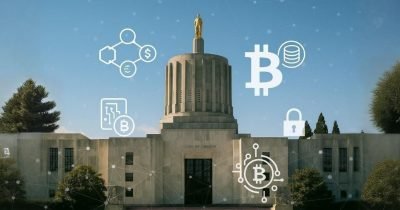How do companies protect against a security breach?

It is no secret that any criminal will have his eyes on the biggest piece of cake he can acquire. It is no different when it comes to cybercriminals. And for them, their favorite desserts are the big tech companies. That is why it is so important for every company to do what they can to protect against a security breach.
With huge amounts of sensitive/customer data around, exploiting just one company can give access to information worth millions of dollars!
No matter how protected business databases tend to be, hackers have very often been able to effectively slip through corporate security defense systems.
One recent example is the Petya Ransomware, a cyber attack predominantly targeted on Ukraine that caused havoc all across Europe and various other parts of the world with an estimated damage of more than $300 million to businesses – most of them being government organizations.
While large tech-companies invest millions of dollars on advanced defense systems, they are often defeated by stronger players in the wilds of the internet. It’s events like these that have pushed tech companies in stepping up their cybersecurity game like never before.
So, what do companies do to protect against a security breach?
Identity and access management (IAM) systems
Traditionally, identity management has been broadly defined as the set of policies, processes, and technologies used for managing access to information systems through the right individuals. It is the core network responsible for safeguarding digital data while effectively tracking system activities.
Even though the system itself is quite complex, the concept is simple – enhancing the privacy of data by limiting the various associated attributes to certain interactions.
Restricting use of unnecessary hardware and software
The higher the number of software or hardware connected to the network- the higher the number of possible exploits. Even though, software companies that sell their products to various IT firms make sure they are immune to cyber attacks, using a redundant program just isn’t worth taking the risk.
More often than not, giant tech firms make sure that different departments of their organization have devices connected to different servers, so that, even if one gets breached, the rest stay secured.
Background checks and constant monitoring
While IT firms carefully monitor for possible malware trying to attack their systems, there have been a good number of instances of intrusion from inside the network. No matter how high-caliber cybersecurity a company has, nothing can stop sensitive data from being stolen if it is operated by someone having a different purpose.
Lately, tech-firms have started resorting to serious background checks and screenings before giving access to important information to their employees.
IT training
Tech-firms and hackers, both, are well aware of each others’ goals! What that means is hackers know that their potential targets have taken the mandatory measures to try to keep them at bay from attacking their servers. Cyber culprits, however, have more than a dozen ways of sneaking into systems which they successfully achieve by capitalizing on human error.
Tech-firms have paid significant attention on developing a corporate culture focusing on security training programs aimed at teaching their employees the risks of negligent use of networks, phishing content, careless password management and improper disposal of information.
Encrypting Data
While having sensitive data stolen is a nightmare itself, things get a lot worse when this stolen data can be used for the wrong purposes. One way to keep data safer is by converting it into a code which can be decoded only by the entity with the decryption key. This doesn’t mean hackers might not have a solution of converting encoded information into a readable form. However, it certainly makes things harder for someone trying to obtain unauthorized access.
Strong Passwords and Password Managers
Using strong usernames and passwords should be a no-brainer. However, what is more important is properly storing them and that is where a password manager comes to play.
Password managers are software that saves usernames/passwords and keeps them encrypted. However, the risk here is the software itself as it is the master program containing all the passkeys. A security issue with it is enough to create a potential security risk.
Having information stolen is the last thing any organization would want to happen, especially if it is that of their clients. Not only it is a matter of reputation, a company might face serious legal issues for not being able to protect their customer’s information.
Be the first to write a comment.




